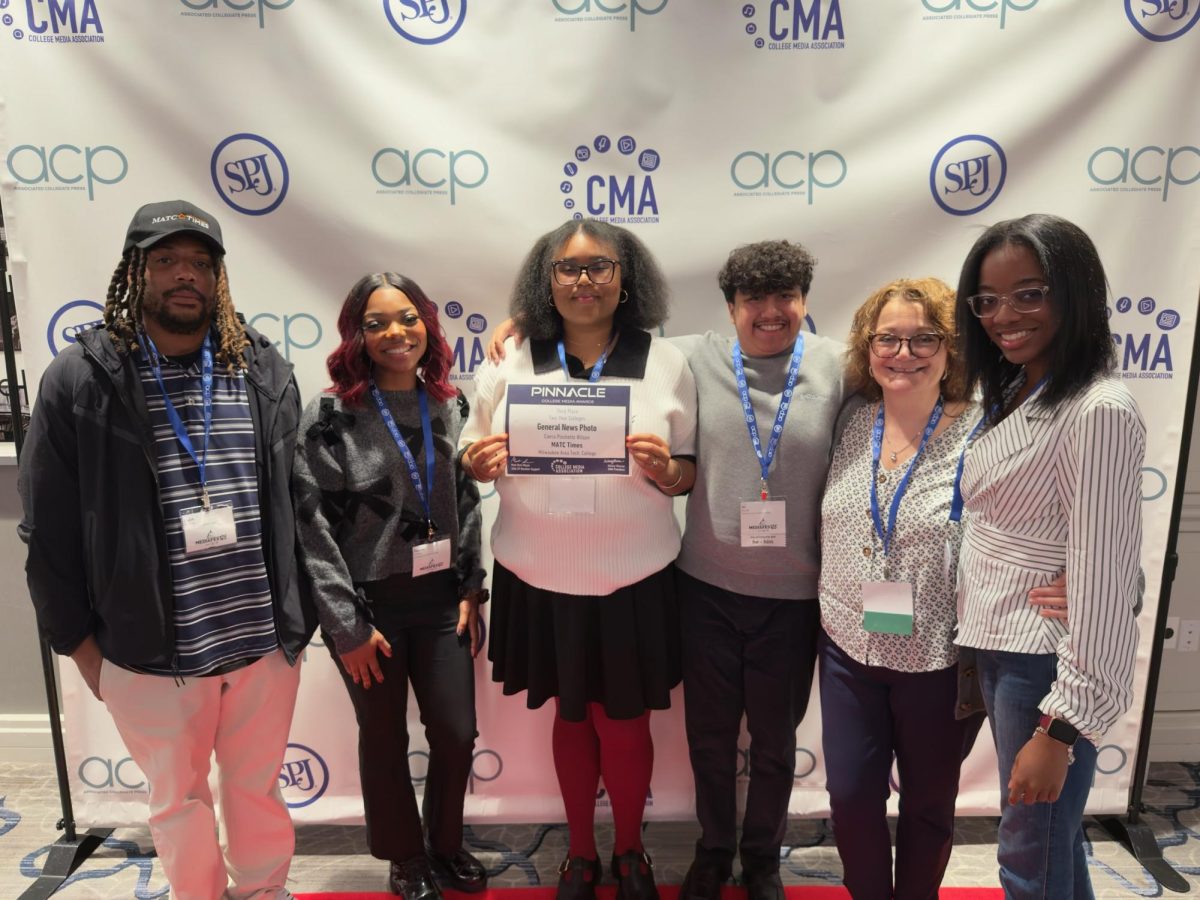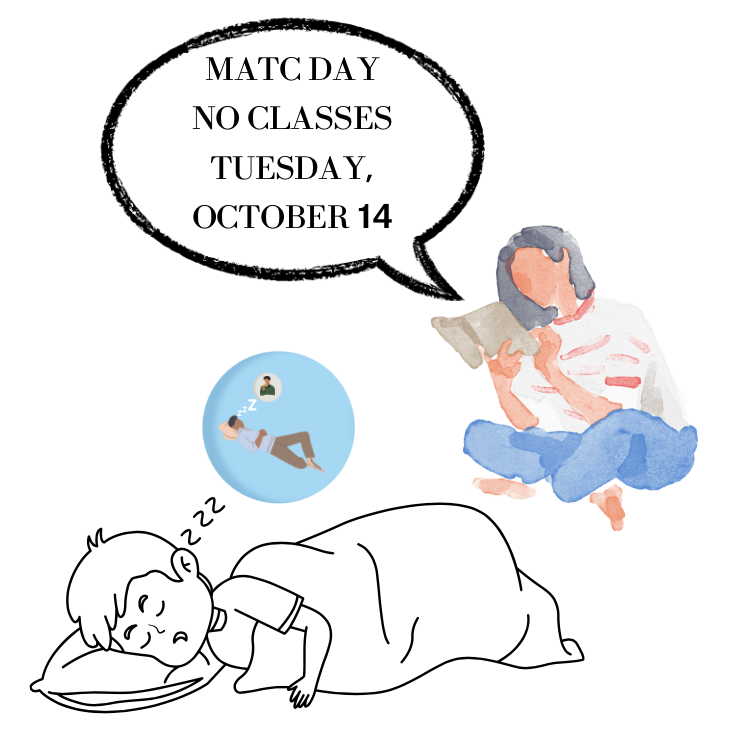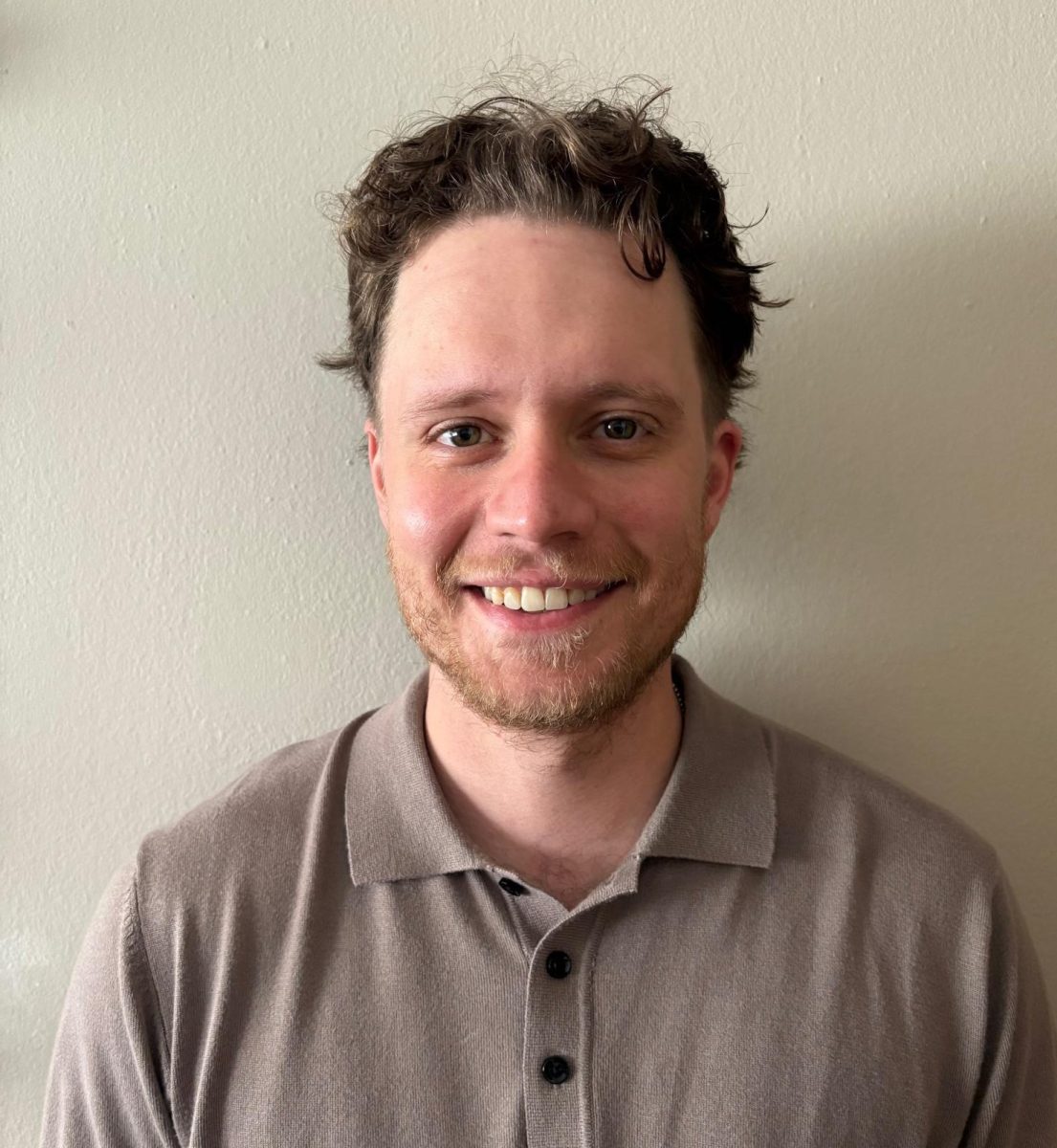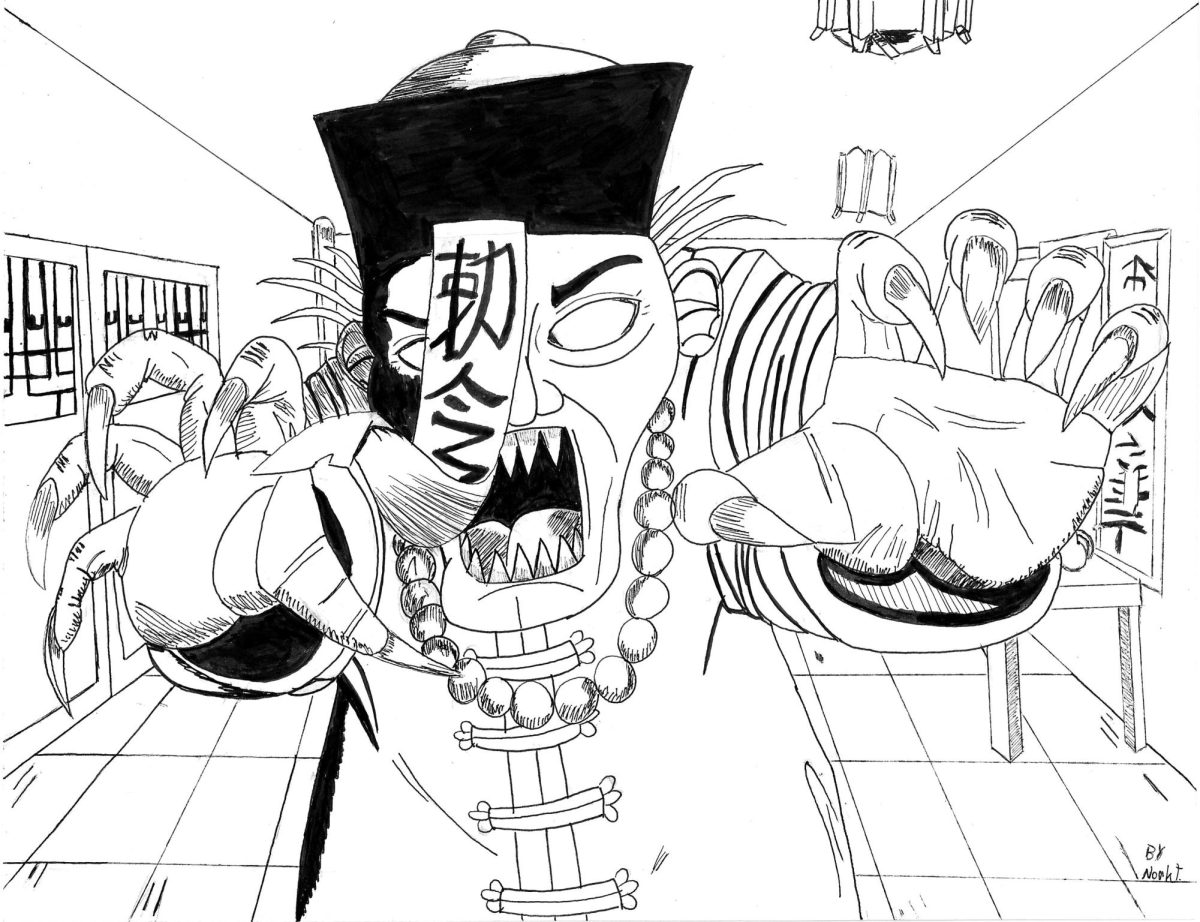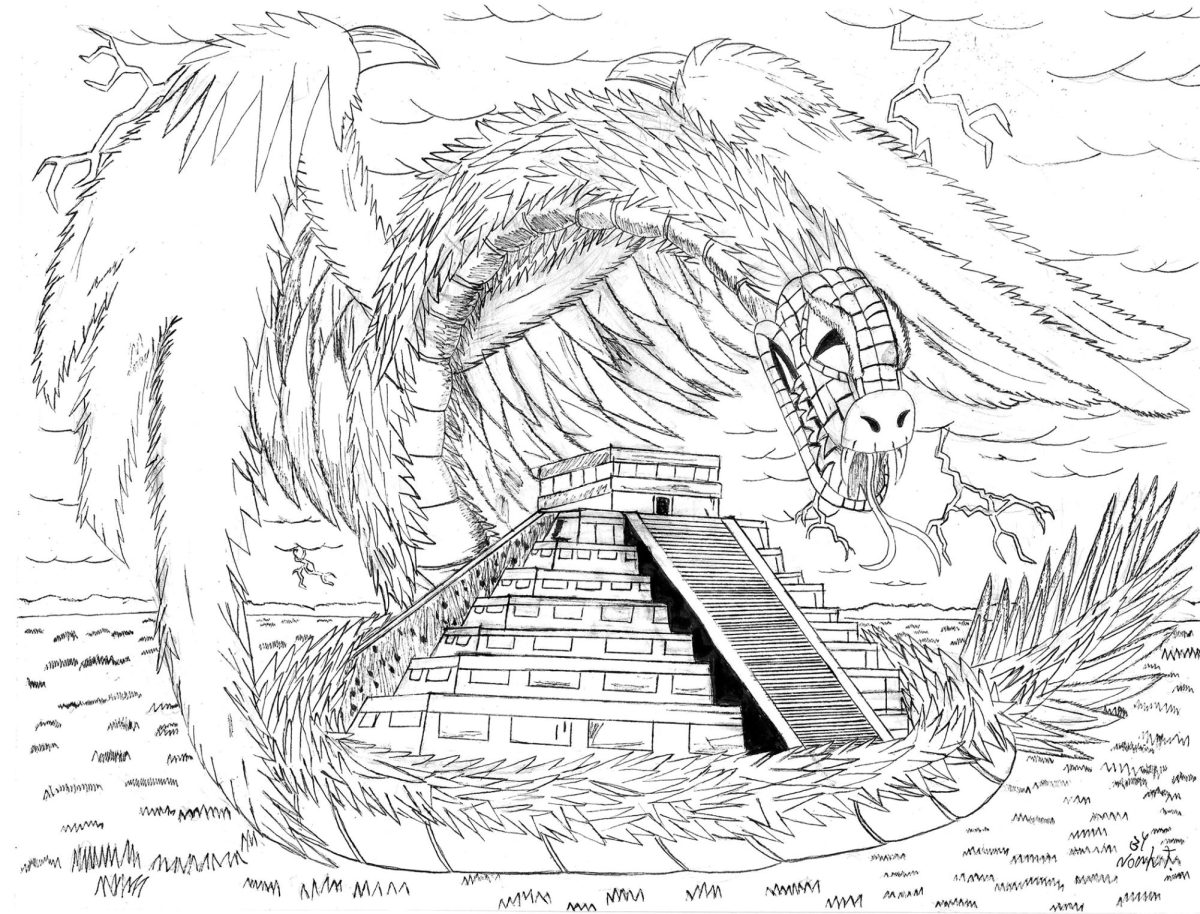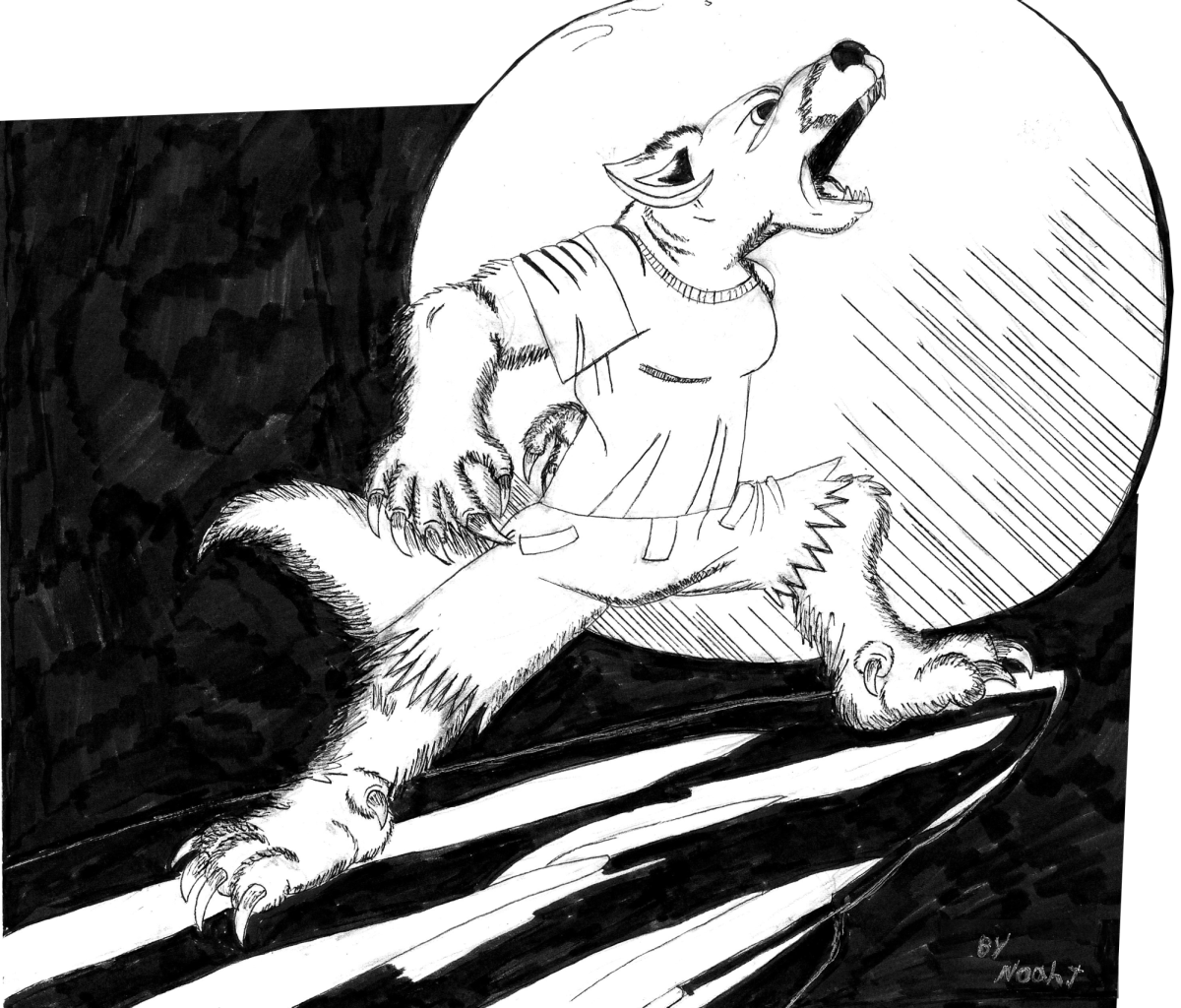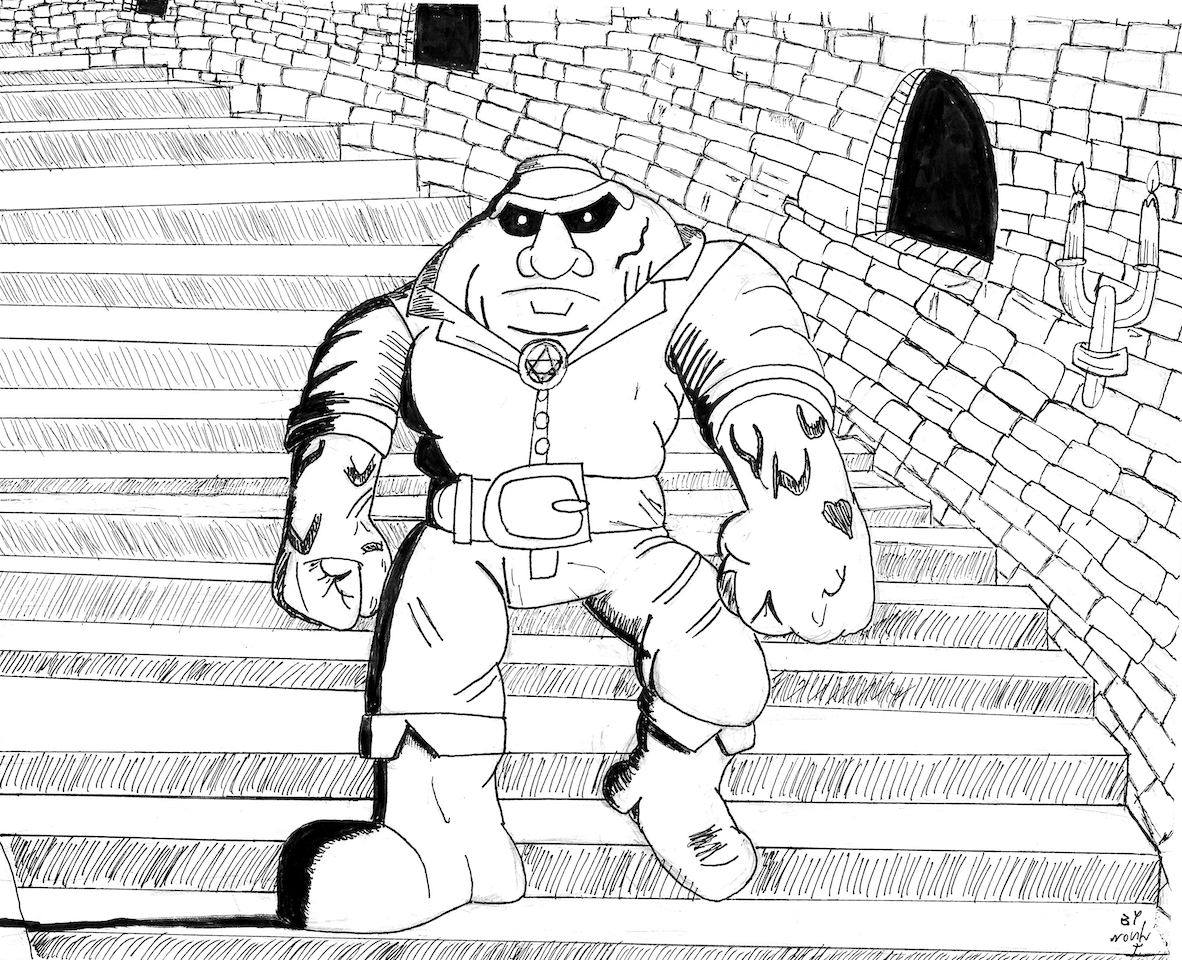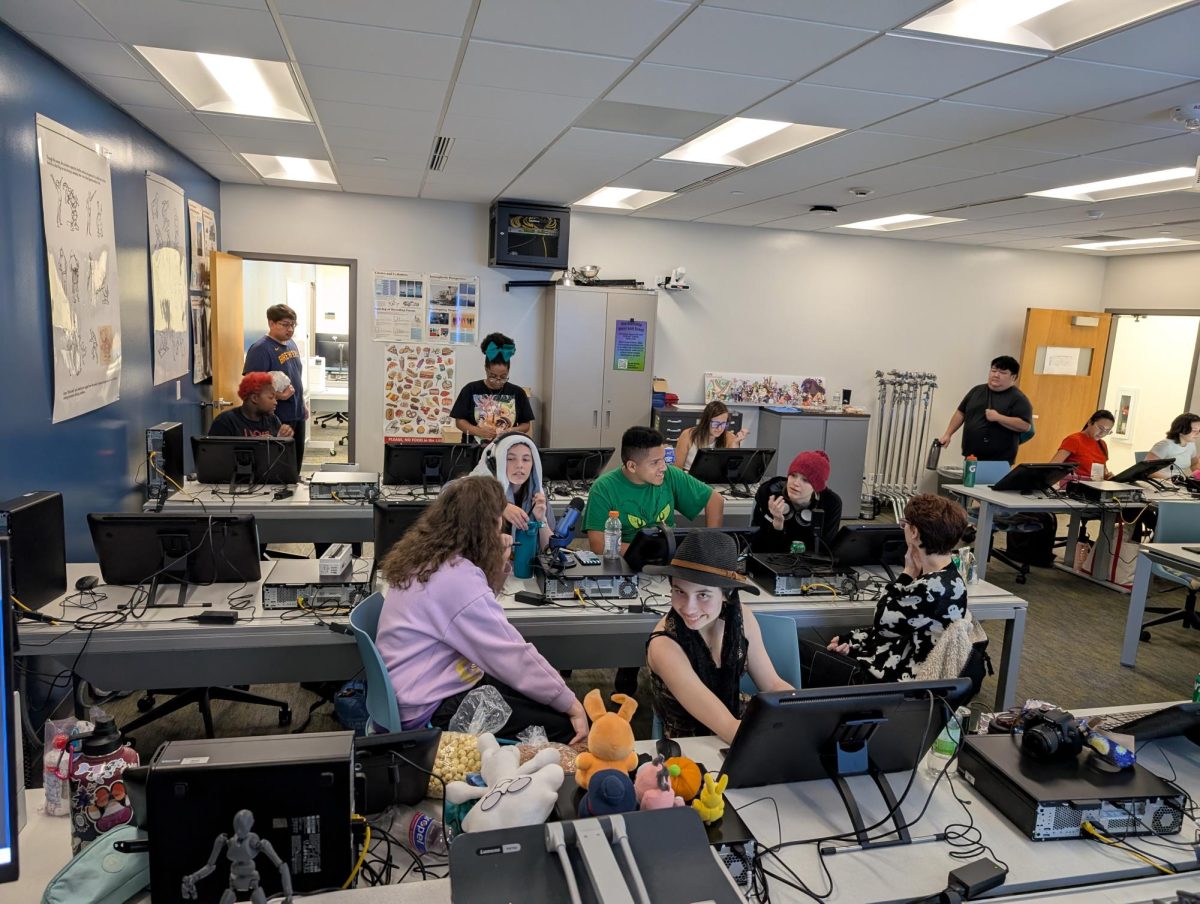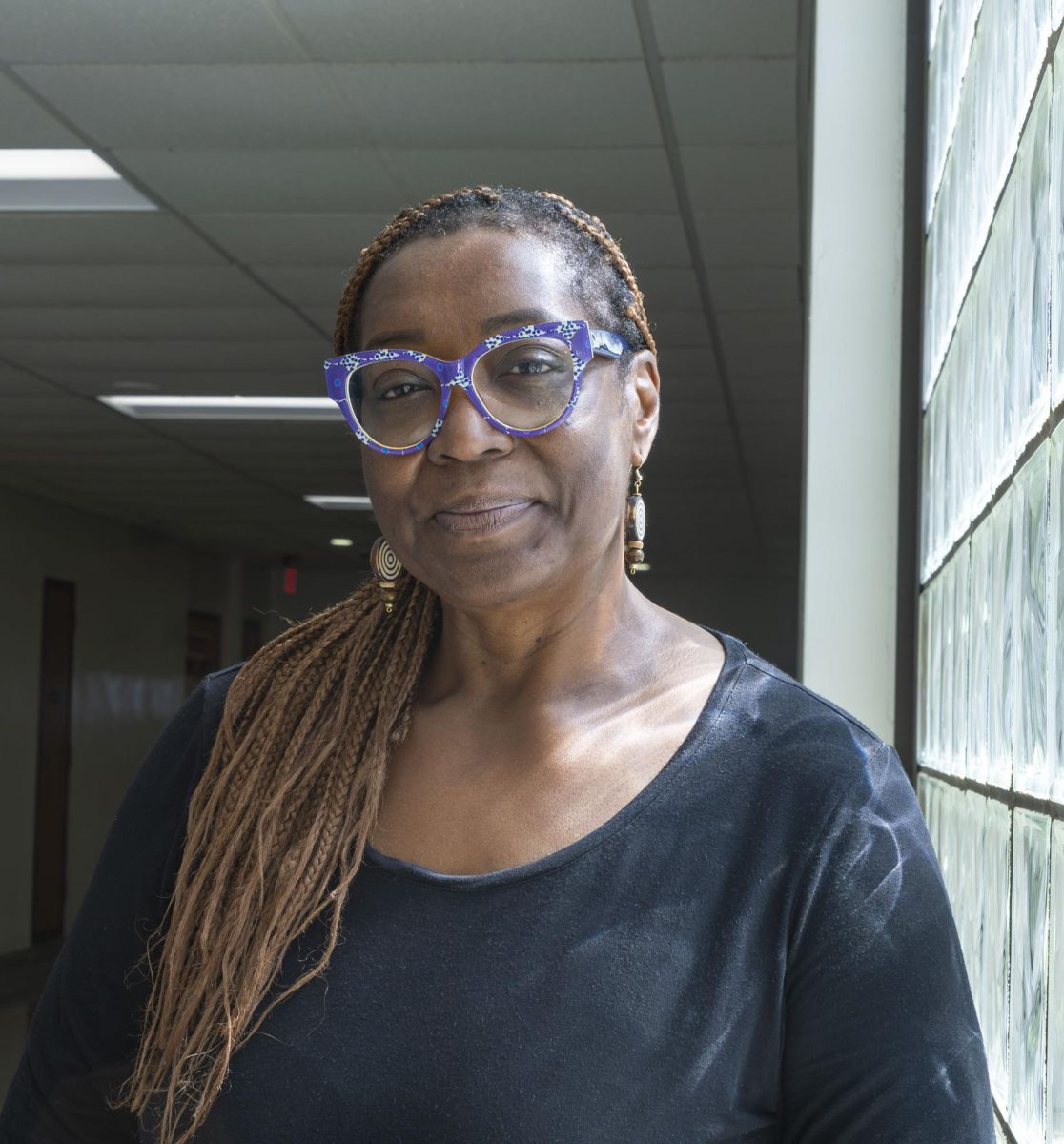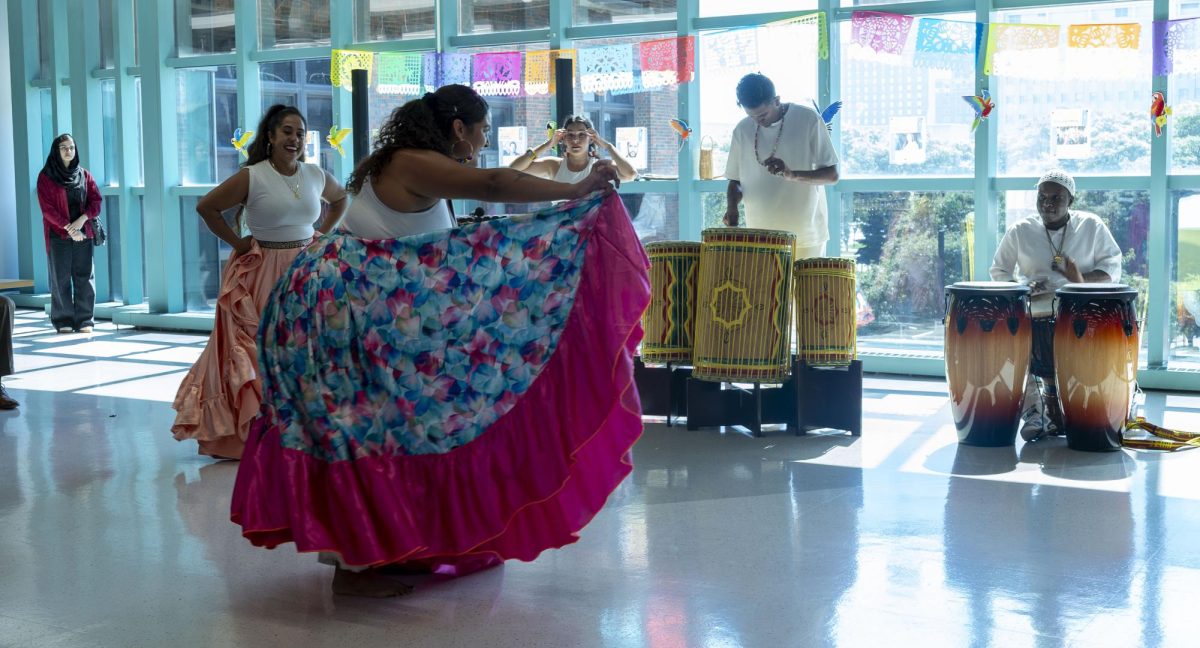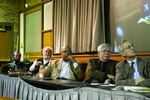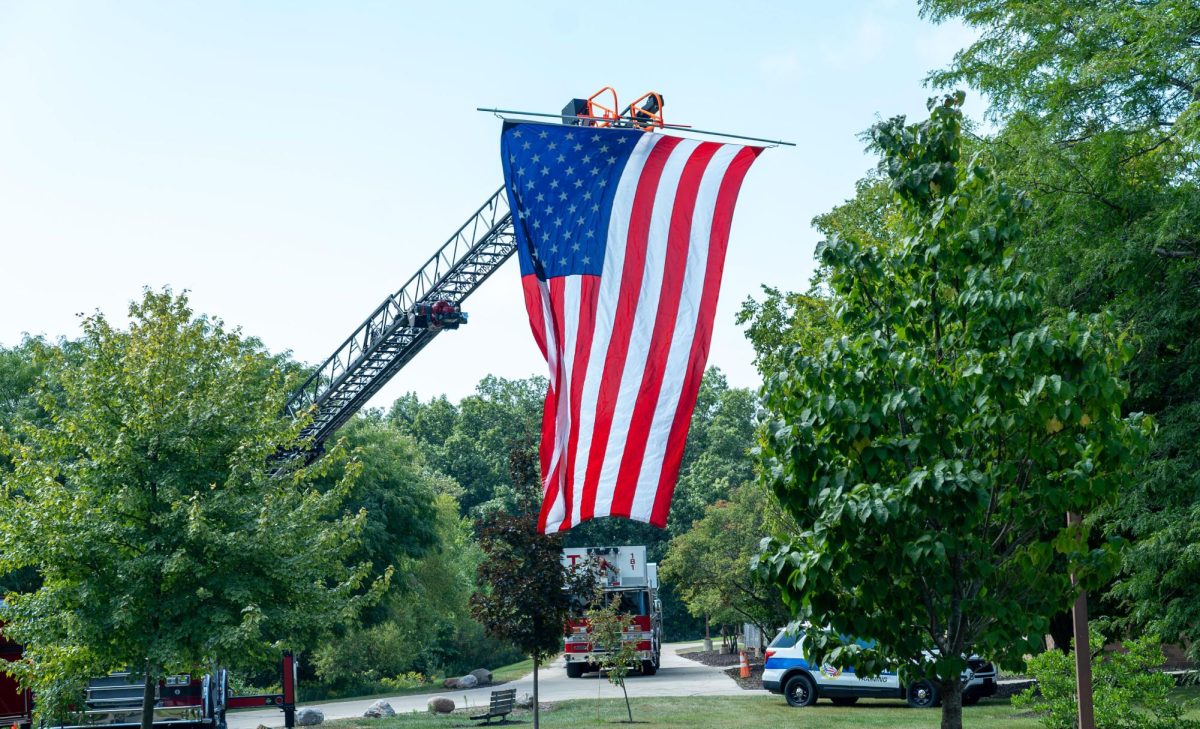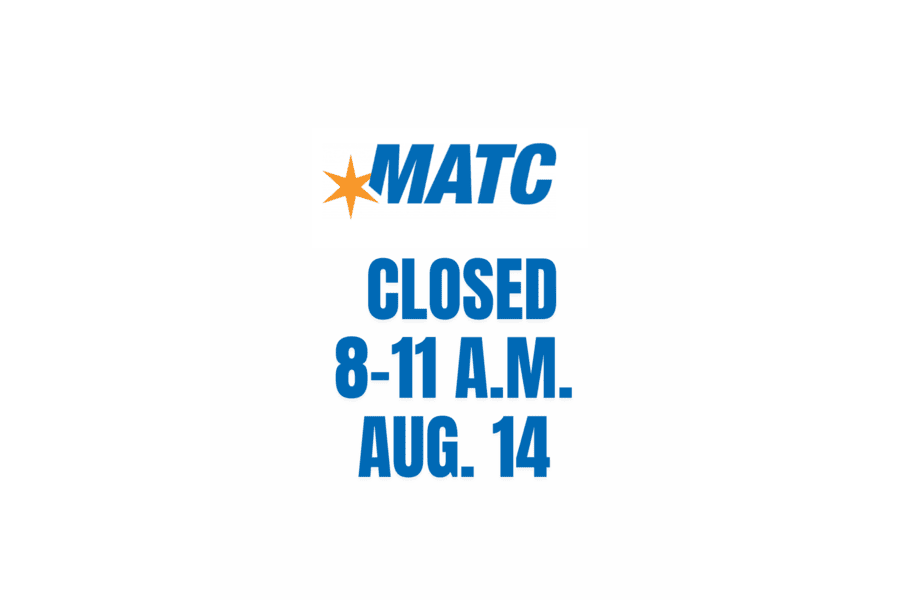Charles Darwin and Abraham Lincoln had a chance to share cake and meet with students and faculty in S120. These two men celebrated their February 12, 1809 birthday bicentennial by discussing views of life, politics and events of the 1800s. The program was well moderated by Dr. George Stone, professor of Environmental and Natural Sciences at MATC. Dr. Stone spoke about Henry Lewis Gate’s PBS program “Looking for Lincoln”(1) which showed Lincoln transform from slave chaser to friend. Stone’s moderating provided an extra smooth transition for each panelist as well as for Darwin and Lincoln’s oratory.The panel consisted of Milton Dockery, instructor of history at MATC, David Hoeveler, professor of history at UW-Milwaukee, James Courtright, professor of biological sciences at Marquette University, and Peter Sheehan, the Robert and Sally Manegold curatorial chairholder and head of the Geology Department at the Milwaukee Public Museum. Dockery and Hoeveler reflected on Lincoln’s legacy while Courtright and Sheehan talked about Darwin. A panel member from the audience included Gabriel Peltier of the Odawa, Bear Clan, Wikwemikong Unceeded Indian Reserve, who gave a documented Native American perspective on Abraham Lincoln. Mr. Peltier is also a MATC student and member of NASM (Native American Student Movement).
“Charles Darwin’s” talk contained his anti-slavery position, thoughts on evolution, as well as answering question directed from the panelists. “Abraham Lincoln” provided a special reading of the Gettysburg Address. Lincoln commented on the political environment surrounding his presidency, as well as answered questions.
Panelists Milton Dockery and David Hoeveler discussed the “Spirit of the Times” and a perspective of how slavery was viewed for the period. They also stated that Kentucky born Lincoln, having roots in a pro-slavery environment, changed during his presidency. Discussion also included the effects from the U.S. government’s slavery position taken when the Northwest Ordinance (3) became law. The U.S. Constitution 3/5th ruling regarding Black Americans to be counted as only 3/5th of a person, was considered in part, fuel for the Civil War.(4) “Moral horror of the war.in order to pay for 200 years of drops from slavery blood for every drop of a dead soldier’s blood” was used to describe the long grueling period of the Civil War and religious reasoning. The Civil War left more dead than any other war in U.S. history. All of these issues were compared within the intellectual legacy of Darwin and Lincoln.
Dr. Courtright and Dr. Sheehan, both went into a well rounded history and biographical discussion about Darwin. References were also made to the February 2009 issue of Smithsonian (2) magazine, featuring Darwin. Charles Darwin was considered a geologist but had trouble with the fossil record and was unable to decipher it. The geological time table was compared by Dr. Courtright and Dr. Sheehan and how Darwin’s views fell into place with the geology. The panelists saw a commonality in how Darwin and Lincoln saw man and his world. Darwin specifically held back his views to the public, until just the right moment, in order to gain some acceptance of his theories on the “Origin of the Species”. (5)
MATC student panelist Gabriel Peltier provided another view on Lincoln. Mr. Peltier displayed a document written in Lincoln’s own hand, a death order for 38 Dakota Native Americans to be hanged in St. Paul, Minnesota on December 26, 1862. It was the largest mass hanging in the history of the United States. Mr. Peltier said, “The death order by Lincoln for the hanging of the 38 Dakota men is but one of the truths about this country’s efforts to eradicate our people from this society.” Mr. Peltier received applause from the audience regarding his views on Lincoln.
The event was sponsored by the Liberal Arts and Sciences Division and is part of the Grassroots Series in order to help students connect issues from the classrooms with our world. Abraham Lincoln was well played by actor John Kishline from Theatre X and Sky Schulz, an educator and humorist also known as Professor Oops, authentically represented Charles Darwin.
(1) “Looking for Lincoln” link: http://www.pbs.org/wnet/lookingforlincoln/featured/watch-looking-for-lincoln/290/
(2) “What Darwin Didn’t Know” link: http://www.smithsonianmag.com/science-nature/What-Darwin-Didnt-Know.html
(3) Northwest Ordinance link: http://www.loc.gov/rr/program/bib/ourdocs/northwest.html
(4) Link to causes of the Civil War: http://www.suite101.com/article.cfm/american_civil_war_retired/3568
(5) Link to Origin of the Species from PBS: http://www.pbs.org/wgbh/evolution/darwin/origin/
(6) Link to hanging of 38 Native Americans: http://www.unitednativeamerica.com/hanging.html


